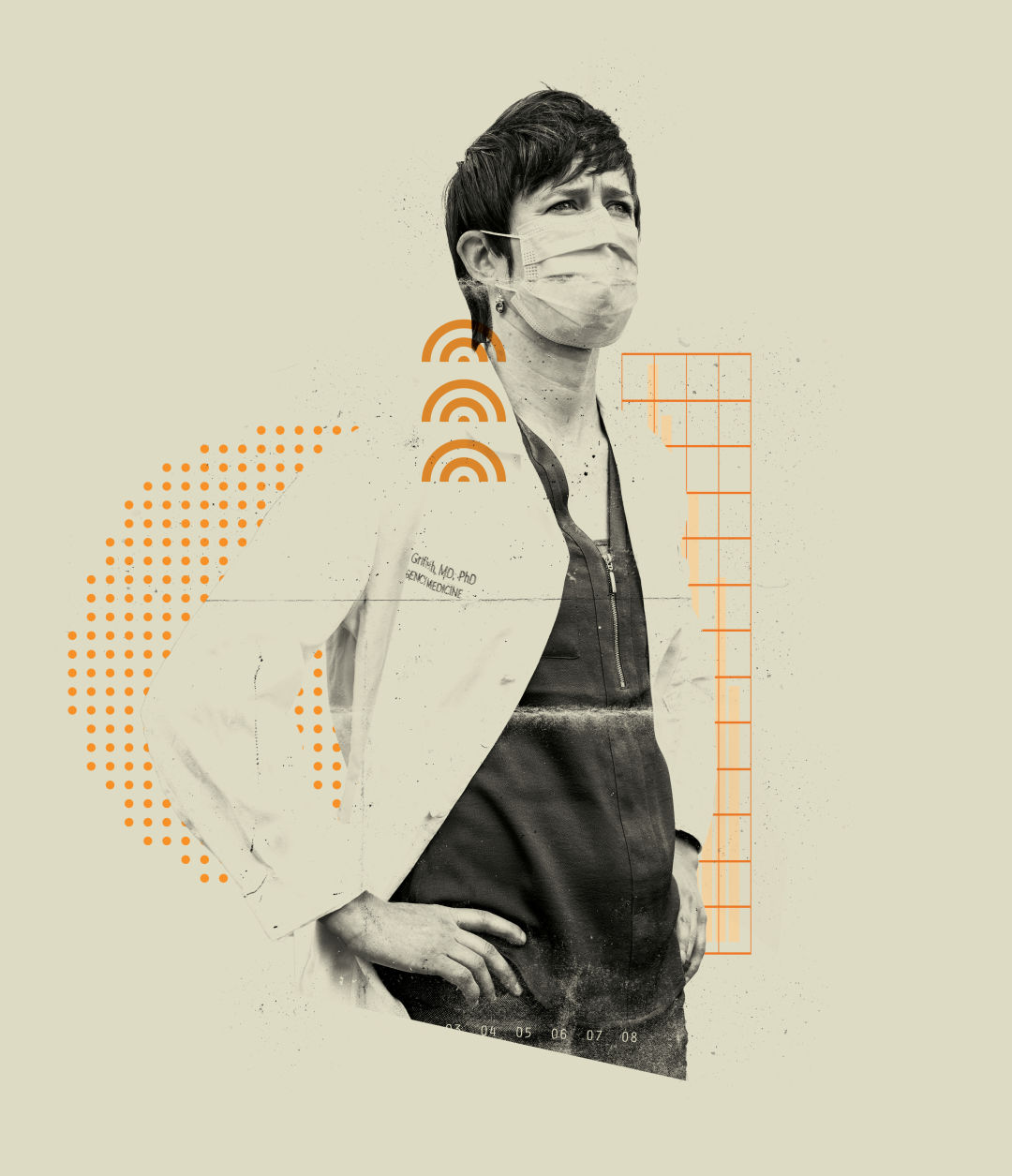This Portland ER Doctor Is Advocating for Health Care Workers

"[The White House and the CDC's] recommendations right now are not being driven by science, but are instead being driven by the supply chain,” Val Griffeth says. “And that can’t happen.”
Image: Brian Breneman
It was mid-March, and though coronavirus cases were surging nationwide, Dr. Val Griffeth, a Portland-based emergency medicine doctor and critical care fellow at OHSU, was starting to think the CDC no longer had her back.
Previous guidance from the federal disease control agency called for medical staff to wear heavy-duty respirator masks when dealing with all suspected COVID-19 cases.
As the PPE supply dwindled, though, the national health protection agency had counterintuitively loosened its guidelines.
“It didn’t feel safe when reading about stories of health care providers from China and Italy and Spain getting infected and dying,” says Griffeth.
Through her colleague Esther Choo (see p. 54), she connected with Megan Ranney, a Rhode Island emergency doctor who was starting a website to help connect health care workers nationwide with protective equipment. On March 21, GetUsPPE.org was born, with Griffeth as a cofounder.
Now the ER doc has become a lead advocate for the effort, putting pressure on elected officials to move the national dial and using all her connections to find an audience with those in power.
“My rugby teammate from college is a political strategist and has been pleasantly surprised about how easy it has been to get meetings through her contacts and other indirect connections,” she says. Griffeth’s regularly on the phone to elected officials, chiefs of staff, and policy experts across the country, pushing them to take federal action to produce and distribute supplies.
And she and the GetUsPPE team are using online platforms like Change.org and MoveOn.org to amass signatures and increase pressure on the White House and the CDC. “Their recommendations right now are not being driven by science, but are instead being driven by the supply chain,” she says. “And that can’t happen.”




